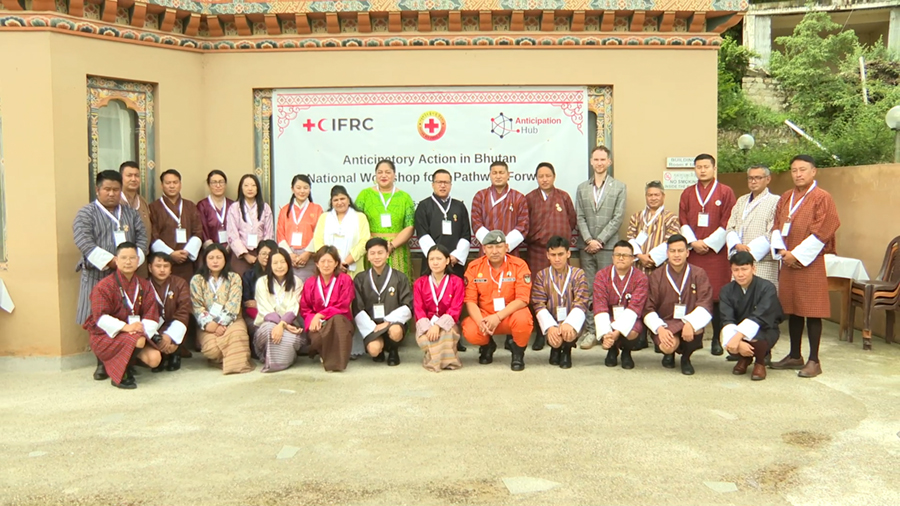
In times of disasters in the country, response and relief measures usually happen after the disaster. This is according to the Bhutan Red Cross Society. Officials said there is a need for preparation or anticipatory action for forecast disasters such as floods, landslides and rainfall among others. Realising its importance, the Bhutan Red Cross Society held a three-day sensitisation workshop which ended yesterday.
According to an official from the Bhutan Red Cross Society, focusing on post-disaster activities is a waste of resources which can be avoided through anticipatory action.
Anticipatory action involves taking measures to mitigate the humanitarian impacts of a forecast hazard before it happens or before its most severe impacts are experienced.
Officials from the International Federation of Red Cross and Red Crescent Societies who were the trainers for the workshop gave examples of forecast flood and drought in other countries and its anticipatory action.
For instance, countries started preparing as soon as there was a forecast of a hurricane in one country and observations of below-average rainfall in another country. Officials said this has helped in reducing the impact.
“Anticipatory action is an additional tool for disaster risk management that can be used in Bhutan by humanitarian actors such as the Bhutan Red Cross Society, but also the government and other humanitarian agencies. It helps reduce the impact before a hazard occurs and also to help empower communities to take effective anticipatory action so that they are not exposed to the hazard,” said Raymond Zing, Regional Anticipatory Action Coordinator of the International Federation of Red Cross and Red Crescent Societies.
He added that since the concept of anticipatory action, is new in Bhutan, establishing an effective coordination structure led by the government would be recommended.
He said that effective anticipatory action implementation depends on collaborative efforts with all relevant stakeholders.
“We learned a lot during the pandemic, in terms of preparedness and response. So, we want to further enhance our knowledge on these topics in partnership with the International Federation of Red Cross and Red Crescent Societies. So, we have sensitised the national key stakeholders involved in disaster management in the country this time,” said Dragyel Tenzin Dorjee, Secretary General of the Bhutan Red Cross Society.
The workshop served as the first phase in developing a roadmap for implementing anticipatory action in Bhutan. In the roadmap, there will be a technical working group for anticipatory action and early action protocols for hazards.
For anticipatory action to work effectively, there is a need for a Pre-Disaster Agreement. According to the Secretary General of the Bhutan Red Cross Society, they are working towards getting the agreement signed so that they do not miss opportunities in terms of technical expertise, human resources, and relief aid in times of disaster.
During the final day of the workshop, participants from government agencies presented the possibility of incorporating anticipatory action into their plans and operations.
They also discussed the challenges faced during the disaster.
Tashi Dekar
Edited by Tshering Zam










